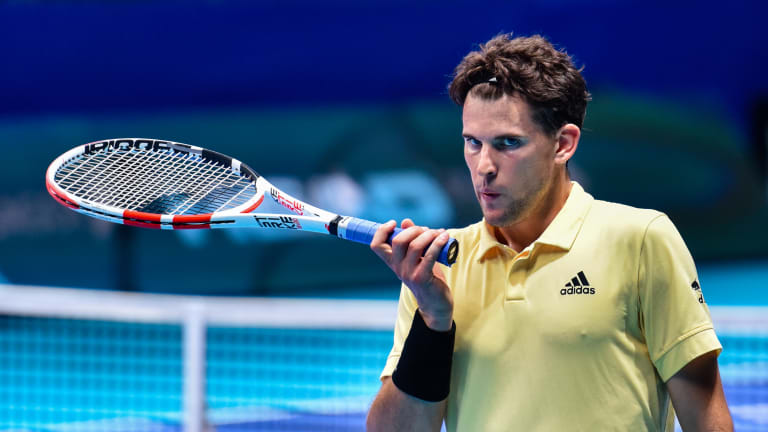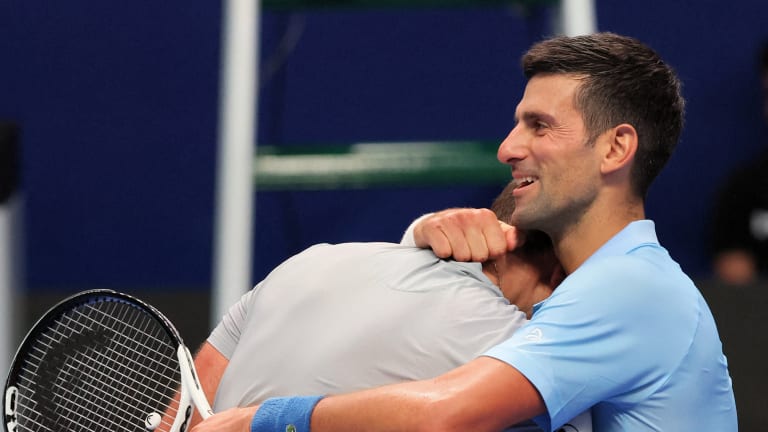The Business of Tennis
One shot to get it right: Tel Aviv promoters hope event is a hit among ATP locker room
By Oct 01, 2022The Business of Tennis
Charleston Open will pay women same as men starting in 2026
By Apr 06, 2025The Business of Tennis
Top ATP, WTA players pen letter to Grand Slams seeking greater share of revenue
By Apr 04, 2025The Business of Tennis
Chairman Andrea Gaudenzi will take over as interim ATP CEO after Massimo Calvelli departs
By Apr 04, 2025The Business of Tennis
Novak Djokovic, Coco Gauff and other players ask Grand Slam tournaments for more money and more say
By Apr 03, 2025The Business of Tennis
Wimbledon plans to upgrade the fans' favorite hill for 150th anniversary
By Apr 03, 2025The Business of Tennis
Tennis star Coco Gauff launches own management firm
By Apr 03, 2025The Business of Tennis
Carlos Alcaraz doesn't support the lawsuit from tennis players' group Novak Djokovic founded
By Mar 19, 2025The Business of Tennis
Why did Novak Djokovic's players' association sue the groups that run tennis, and what do they want?
By Mar 19, 2025The Business of Tennis
PTPA, a players' group founded by Novak Djokovic, files antitrust suit against tennis organizers
By Mar 18, 2025The Business of Tennis
One shot to get it right: Tel Aviv promoters hope event is a hit among ATP locker room
Peter Johnston of the Watergen Tel Aviv Open talks pulling this week's event together with a short runway, having Novak Djokovic in town and respecting local culture.
Published Oct 01, 2022
Advertising

Dominic Thiem took a wild card as part of his heavy fall calendar; he was edged by Marin Cilic over three sets in the second round.
© Matt Fitzgerald
Advertising

Djokovic defeated Vasek Pospisil Friday night to reach the semifinals.
© AFP via Getty Images